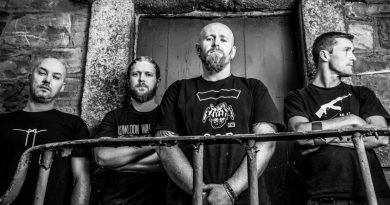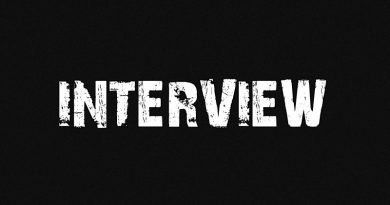Sons Of Alpha Centauri: Interview With Bassist Nick Hannon
There was a time when releases from Kent’s finest instrumental purveyors of instrumental stoner/progressive/space rock Sons Of Alpha Centauri were few and far between, but the last few years has seen the band hit a purple patch of intense activity and on their third album release, a bold and radical departure in many ways and filled with classic sounding material, I managed to get bassist and all round good guy Nick Hannon to spare me the time to talk about 90s post-hardcore influences, collaborating with other artists and of course the detailed writing process involved in the creation of their new album Push.
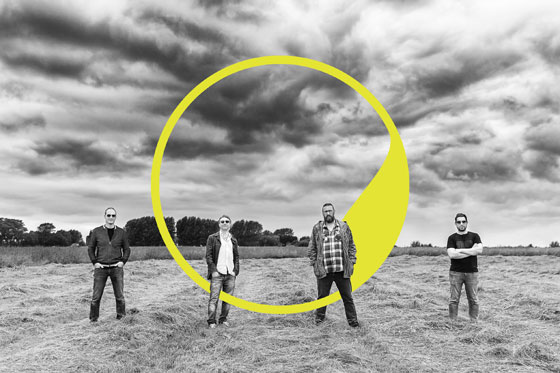
Hi Nick, nice to catch up again. First off congratulations on the new album, Push; it’s quite a radical departure and yet still manages to capture the Sons Of Alpha Centauri sound.
Hi Mark! Thanks to you and Lee for reaching out! Thank you for the amazing support of The Sleeping Shaman in 2021. Love the zine and appreciate all of the support!
You guys released your debut in 2007 and it took 11 years to follow that up with Continuum as you were side-tracked with many excellent collaborations and here on Push you have done it again under your own moniker. What draws you to working with other artists and do you find it more appealing that just working as a singular unit?
We were really fortunate to be exposed to so much cool alternative music in the 90s that there were so many avenues to explore and dive into. We’ve been true to the fact that it’s about writing music that we would want to listen to, or where I felt that there were gaps/missed opportunities. Within the development of certain aspects of a scene, or genre, whether it be desert rock, industrial, post-metal or hardcore that it could be adapted into our wider development arc of the band. In order to really generate an element of uniqueness and context to the records, then sometimes it’s really cool to bring in that special ingredient which can further give that record the context.
We were really fortunate to be exposed to so much cool alternative music in the 90s that there were so many avenues to explore and dive into…
Sons Of Alpha Centauri have never stylistically stood still and made the same sounding album, even when working with other artists or by yourselves, your palette has been diverse. Do you view your music as an evolving journey, or do you set out to write with a certain mindset?
The debut was definitely a dual sided coin – one element was the progressive stoner riff rock and another was the more abrasive post-metal. They integrated well but evolving each element dug deeper into another tranche that we wanted to develop. That has created multiple strains all encompassed under the SOAC ideology for sure! It’s an evolution of multiple integrated threads but there is a planned trajectory. It’s really hard to talk about it without giving away what is coming – but the more that the shroud is revealed the more sense it will make retrospectively!
How does the band’s own writing process differ, apart from the obvious? When you, and the band are writing a SOAC release, does someone bring the basis and then it expands or is it largely born from jams and discussion?
The writing process is pretty direct in that myself and Marlon write the songs – we each have our own skill set but between us, the music for every song has been written by ourselves. We did jam a few songs, but they became really unwieldy and detached. We used to review and revise our writing a lot more than we do now – the editing actual lost the energy of the originals and almost without fail, the first writing cut is the preferred version.
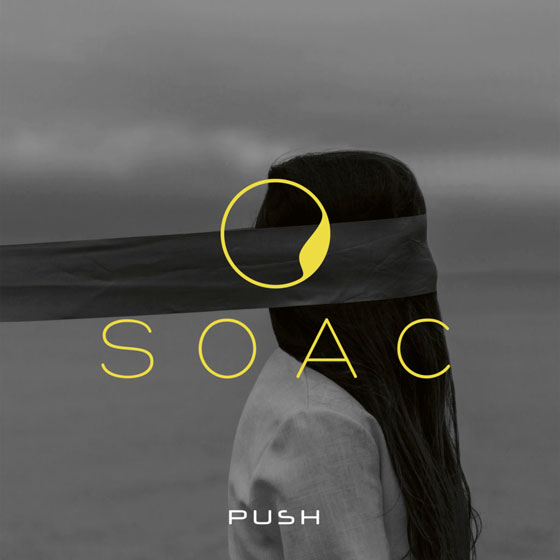
And when you’re collaborating is it laid out from the start what you’re trying to achieve or does it happen organically and you see where the end result takes you?
We get a benchmark of what we’re thinking and from there write new music and occasionally we’ll integrate other ideas that we have had (including pre-written tracks from our numbered track chronology) are blended into the album. For example, a track written during the Continuum sessions (67 – Saturn) was used for Push. It just fitted with the album so much better for song vocal lines and harmonies than had it sat within Continuum.
Push is the first album under the SOAC name to have vocals, which is quite a change of pace for long-time fans. Was this a result of the opportunity to collaborate with Jonah (Matranga, former Far vocalist and prolific solo artist) or something you deliberately set out to do?
We knew that in order to evolve beyond Continuum, and its sister release Buried Memories, we would need to integrate vocals. However, we consciously didn’t want to disappear into really intricate prog rock band nor dissipate our energy into five-minute plus songs within a hardcore or metal context. That feels quite saturated right now and they’re not pastures where SOAC feel comfortable. The idea of migrating towards really clear protruding vocals with SOAC riffs, post-hardcore dominance and crystal-clear production really felt like something that hadn’t been done for a long time and we gravitated towards that. When the first three tracks had been written we pitched it to Jonah, and it landed perfectly.
We knew that in order to evolve beyond Continuum, and its sister release Buried Memories, we would need to integrate vocals…
As mentioned, the album features Jonah but it also features Mitch Wheeler (Will Haven) and between the two artists this helps lend a Sacramento screamo/hardcore/late 90s influence to the sound. We share a love of Will Haven, for me as a heavy band they, like Deftones and Far, have a range of dynamics that take a moment or two to find, and that helps set them apart. This isn’t something that a listener would really glean from your previous albums. What was it that is appealing to you?
Massively. It was the first time when we could regress to a time before the release of our first album and enabled a sense of reinvention without having to undertake a creative revolution. To find a way to integrate that vibe and musicians from such influential and inspirational bands has been another fantastic learning opportunity.
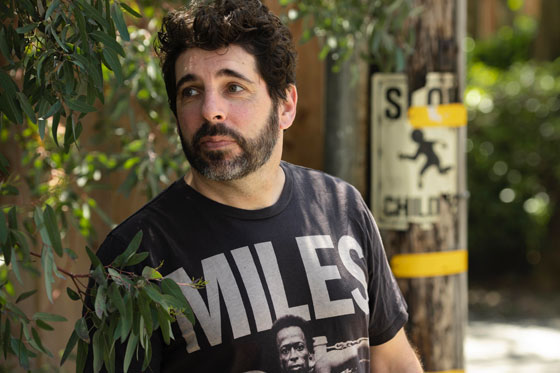
How did this collaboration come about? Was this something you wanted to do and reached out to those specific artists or did happenstance bring this alignment of people about?
At some point during the Continuum recording sessions deep in the Kent countryside and by the coast (quite literally) for the writing sessions, I think we realised that there was a divergence in the style of writing. Some of this might have even been evident on the sessions we’d written for the tracks that were destined for the splits with Karma to Burn. That ground swell prompted some deep thought about the potential for vocals. That was the planting of the seed for sure!
Both are extremely talented musicians, what specifically did they bring to the process? And was it what you expected or something different?
When Jonah first spoke about how to approach the tracks he was like ‘You guys do your thing, I’ll do mine and we’ll see what happens’. We had to totally acknowledge that while sonically it might have been a fit, when it came to lyrics, themes, consistency of style, for both music and vocals, that it might not have worked. As such, for the initial session we spent a lot of time in the studio working on ideas and lyrics and working with Jonah has been an absolute privilege. The chemistry and ideas were free flowing, and the first batch of tracks gave everyone immense confidence in the record.
When Jonah first spoke about how to approach the tracks he was like ‘You guys do your thing, I’ll do mine and we’ll see what happens’…
Stevie graciously shares drum duties with Mitch and (producer) Dan Lucas and ironically drums on what I think is the heaviest track on the album (The Enemy), did Mitch specifically try to change up his style and vice versa?
With Mitch it was slightly different as Steve laid down the first batch of tracks with the drums and we had started working on the next batch when it became evident that the style of performance would be better suited to Mitch. Steve was pretty honest in saying that this record was going in a direction he didn’t feel would work with his style. Steve is a fantastic drummer, but his skills are in the world of free flow, tom work, classic rock drumming. He can play a lot of other styles too but when I walked in with a load of hardcore songs, I can understand his position! Now, he and I drilled The Enemy really hard over quite a few years and you can hear all of the intricate elements of his performance and it’s amazing.
However, after the first session and having worked together for a long time he felt that it might be better for someone who could ensure that the album got the justice it needed to step in. As such, I went to a Will Haven show, grabbed Mitch Wheeler and pitched it to him, sent him the tracks and he was really into it. His performance took the record to another level. I can really appreciate different specialist skills and approaches to drummers more. I’m blessed to work with and engage with such skilled musicians. Good drummer = good band. Great drummer = great band. Mitch just fits perfectly on this record, they work with Jonah better and opens up even more possibilities for the future.
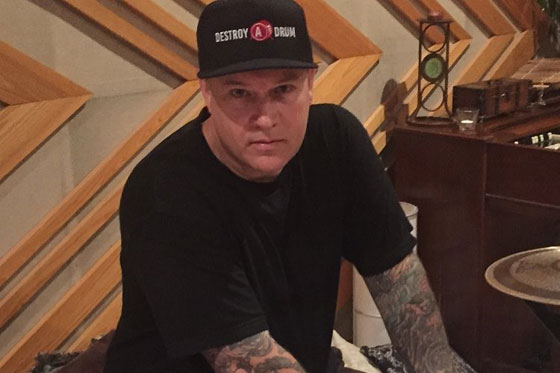
Having touched on Mitch and his drumming, what was behind having Jonah as the singer for this album? (Other than having a fantastic and distinct voice).
When I was 15, I was listening to Far and the vocalist in my first band, Pariah, was massively into them too. As such, I knew that style of vocals could work with tracks that I’d written. The tracks were more complicated and orchestrated but that was important plus, as you say Jonah has a fantastic and distinct voice. He’s not the vocal sound of SOAC, he is the sound of Jonah Matranga and the countless other amazing bands he has sung with. As such, knowing that we wouldn’t be judged by the vocals, that provided us with a certain amount of freedom and flexibility too.
Having vocals gives the album a certain structure and accessibility that may not have present for some people before. Some of it is almost quite poppy. Was this a deliberate choice or was it incidental to what you were trying to achieve?
It became more deliberate as the record was written. The tracks on our debut and Continuum are always busy, they need to be to captivate the listener. Riffs are crucial, but harmonies and melodies are needed so it doesn’t sound too flat! With vocals you do need to make space for them, which mean simplifying your approach. If anything, that’s harder as it needs to be simple and sound really good, which isn’t always immediately apparent to deliver when you’re writing!
I went to a Will Haven show, grabbed Mitch Wheeler and pitched it to him, sent him the tracks and he was really into it…
Can we expect any more vocal tracks in future (Marlon’s vocals on Sky Island are fantastic)?
SOAC will always have instrumental identity, values and tracks. We are nervous to release Push because of the vocals. We’ll see.
You finished up Continuum/Buried Memories in 2018/19, recorded Sky Island with Yawning Sons in 2019, then 2020 saw a global pandemic press pause on life and yet here you are with another set of quality tunes. How did you manage to work all that in?
You know, this is strange, but SOAC is now really starting to get critical mass. I watched so many bands locally and that had potential burn out really quick. This band is a really slow burner but it’s also a constant builder. Some of these are the result of working on a lot of music over a significant period of time and gathering a gradual but dedicated audience. Not using the internet as a massive promotions tool is really tough but I quite like that challenge plus, I think people burn out from reading ‘pushed’ material onto them all the time. Buy this, check out that, here’s my opinion, think this. Nah man, not for us.
I’m sending out a lot of postcards to people next week for the album because that’s what we used to do. It’s more of a dedicated moment that you can feel and see is more of an artistic vector. The internet has been cool as an knowledge repository and as a comms tool, but for self-promotion and for rendering a digital ego, it feels a little contrived. Whatever happened to a bit of mysticism and being withdrawn? In many ways it means not wanting to push ourselves to be seen. We’d rather be heard and not ‘scene’.
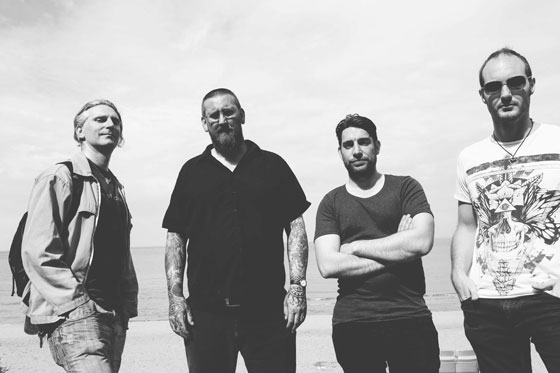
The album covers a range of emotions and atmospheres, but ends on what I feel is a positive, hopeful message. Was that a conscious decision or a message you wanted to convey?
It’s a darker album for sure and quite introspective. However, with Jonah’s delivery it always has an element of uplift and hope within it. The journey is less abstract than Continuum and that directness is attributable to an amazing vocal performance from Jonah, but also the lyrics. He has this amazing metaphorical and stream of consciousness vibe which transposes them into any situation and my hope is that they relate to different things to different people. The identity of the vocals and lyrics should not be fixed, in the same way that the interpretation of the music is not and shouldn’t be either!
With the events of the past 18 months or so, seemingly changing (and hopefully for the better) how do you see these songs being incorporated into your live set?
I think that we all have our favourite tracks and if we were to do a show with Jonah then clearly the whole set would probably be from Push. However, in his absence we know that all of the tracks work instrumentally too! Some of them would be awesome to integrate into the SOAC instrumental set for sure – although again, it depends who is drumming!
Continuum, Buried Memories and Push have really seen us evolve the darker side of the band…
The future is obviously unwritten, and it seems a strange question on the cusp of your album release to ask you what lies ahead for SOAC given this new addition. Will you be considering vocals for the next songs, or can we expect a return to instrumentals in your future, or given that you scrapped a second album to go off and make an entirely different entity with Gary Arce, something entirely new again?
You know what, Continuum, Buried Memories and Push have really seen us evolve the darker side of the band. I’m still including the Ambient Visions mini-releases in limited edition versions of records for my ambience and electronic dance pursuits, and we hit the riff rock stuff hard with the records and collaboration with our brothers in Karma To Burn and Treasure Cat. Before we started what would become Ceremony To The Sunset with Gary Arce we did have an idea of a potential other direction to go in…
And on that teasing note, I would like to say thank you to Nick for taking the time to answer all my questions in such detail and urge you to check out the new album from Sons Of Alpha Centauri, the fantastic Push, that releases today, 27th August through Exile On Mainstream Records.
Label: Exile On Mainstream Records
Band Links: Official | Facebook | Bandcamp | Twitter | Instagram

